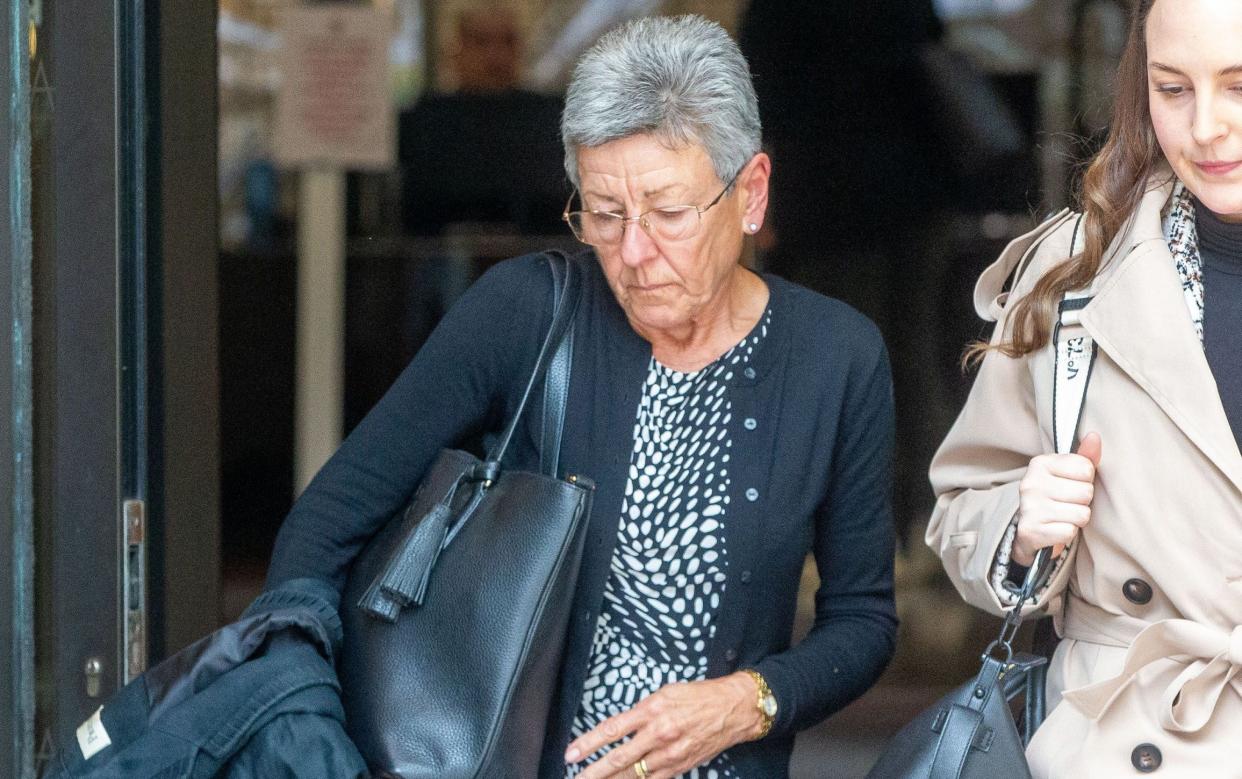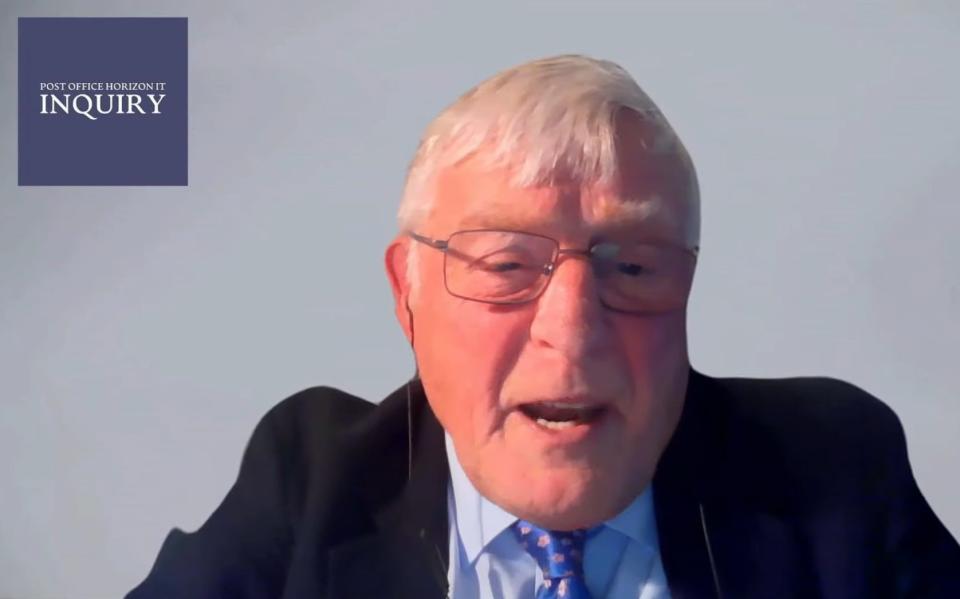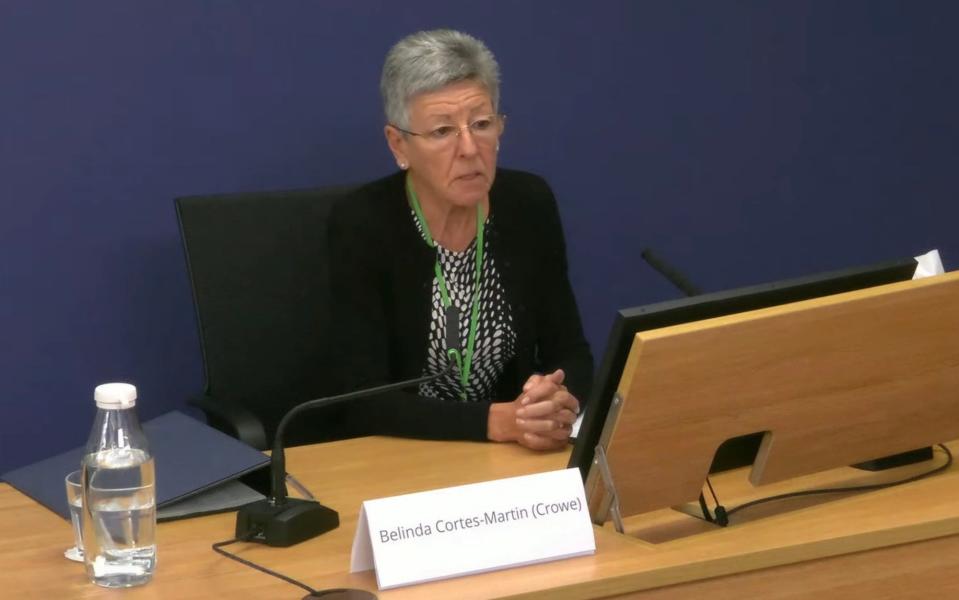Post Office director discussed ‘fettering’ investigation into Horizon IT scandal

A Post Office director discussed how to “fetter” the forensic accountants investigating complaints about Horizon software, the inquiry into the scandal has heard.
Belinda Cortes-Martin began taking on work for the Post Office as an independent consultant in 2012. She previously spent more than 30 years as a civil servant and held the position of information director for the Ministry of Justice.
On Tuesday, Mrs Cortes-Marten was asked by the Post Office Horizon IT inquiry about notes she had added to a request for information from Second Sight, the forensic accountancy firm.
In the notes, she appears to suggest the Post Office should consider carefully how it seeks to “fetter” – meaning to restrain or restrict – the investigation.
Second Sight had been appointed to carry out an independent investigation into complaints raised about the IT system.
More than 900 sub-postmasters were wrongfully prosecuted over a 16-year period as a result of the bug-ridden Horizon system, which falsely recorded shortfalls in their branch accounts.
In an email written to the Post Office’s then general counsel in Jan 2014, Second Sight director Ian Henderson raised concerns about the “proposed scope” for the firm’s work.

Mr Henderson also said the scope attacked the “fundamental principle that Second Sight operates completely independently” of the Post Office.
However, notes added by Mrs Cortes-Martin read: “We need to consider carefully what and how we seek to fetter.
“SAH [Sir Anthony Hooper] has made it clear that SS [Second Sight] can include what it wants so we need to tread carefully.”
Mrs Cortes-Marten sent on the request, with her additional notes to an external law firm used by the Post Office.
The comments were written days after Mrs Cortes-Martin became the Post Office’s Programme Director for Project Sparrow, a role which included acting as the “main channel of communication” between the chairman of a working group dealing with complaints made by sub-postmasters and the Post Office itself.
Project Sparrow was the codename for a sub-committee which dealt with the Post Office’s communications with parties including Second Sight, MPs representing unhappy sub-postmasters and campaigner Alan Bates’s Justice for Subpostmasters Alliance.
Yet in her witness statement, Mrs Cortes-Martin said she was “not aware of the background” to Project Sparrow’s setup and that she did not recall if she was ever told its “original remit”.

Former Court of Appeal Judge Sir Anthony Hooper was chair of the working group.
When asked what she meant by the written notes, Mrs Cortes-Martin told the inquiry: “Commenting in this way, one doesn’t necessarily expect that some ten years later, you’re going to be answering questions about it.
“So I acknowledge that [in] this and other emails I have not chosen my words as I might have done, had I known this.”
She added: “But I think what I’m saying here is, there must be something that Second Sight has objected to that makes it look as though Post Office is trying to fetter it. And what I’m saying is ‘we need to think carefully about the extent to which we do that’ and actually it’s nothing more than that.”
Summarising what she had intended to be inferred from her notes, she said: “Don’t try to fetter Second Sight in a way that’s not appropriate, particularly in light of what Sir Anthony Hooper has said.”
Mrs Cortes-Martin was also asked about another email sent in December of the same year, in which she described a list of questions submitted by Second Sight as a “pretty considerable fishing expedition which includes a lot of general requests”.
When asked about this correspondence, Mrs Cortes-Martin said: “There had already been, I think, a number of exchanges and conversations within the Post Office about the extent to which Second Sight might ask for either raw or base data, or a lot of general information that didn’t relate specifically to a [sub-postmaster’s mediation] application.”
Earlier in the day, Mrs Cortes-Martin expressed regret that she did not push against suggestions from Andrew Parsons, then a solicitor at Womble Bond Dickinson, to downplay a report which questioned the reliability of an expert witness used in sub-postmaster trials.
As the hearing drew to a close, she was asked if she regretted anything else during her time at the Post Office, which ended when she retired in March 2015.
Mrs Cortes-Martin said: “I suppose sitting here now, I regret not digging down deeper into some of the issues that clearly passed my desk, because, had I done so, I might have asked more questions.
“I can’t guarantee because this whole issue continued well after Ieft.”
She added: “I could probably come up with a list if you needed it and I would say, I regret being involved in it in any way at all. [That] is my biggest regret, if I’m honest.”
Mr Parsons is due to give evidence to the inquiry next month.

 Yahoo News
Yahoo News 
